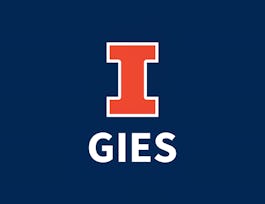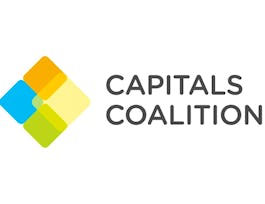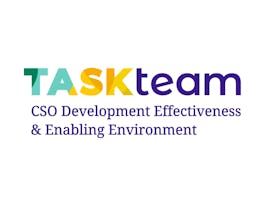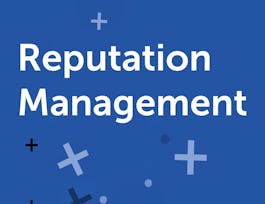The third course in this Specialization introduces you to the factors that influence how effective boards of directors will be in carrying out their roles and responsibilities and hence the impact they have in shaping the success of the organization they govern. While this course has been developed with North American culture in mind, we do appreciate that, in other parts of the world, the nature of the factors that influence the effectiveness of nonprofit boards of directors may vary. Nevertheless,it is our hope that much of the course content will still be of value to those in other parts of the world.



The Factors that Influence the Effectiveness of Boards and the Governance Process
This course is part of Improving Leadership & Governance in Nonprofit Organizations Specialization


Instructors: Prof. Yvonne Cafik Harrison, PhD
Sponsored by Louisiana Workforce Commission
6,494 already enrolled
(62 reviews)
Skills you'll gain
Details to know

Add to your LinkedIn profile
7 assignments
See how employees at top companies are mastering in-demand skills

Build your subject-matter expertise
- Learn new concepts from industry experts
- Gain a foundational understanding of a subject or tool
- Develop job-relevant skills with hands-on projects
- Earn a shareable career certificate


Earn a career certificate
Add this credential to your LinkedIn profile, resume, or CV
Share it on social media and in your performance review

There are 5 modules in this course
Hello and welcome to Course 3 in the series of courses on Improving Leadership and Governance in Nonprofit Organizations! The focus of this course is on the often unrecognized influences on how well a board carries out its governance role and responsibilities. The goal of the first week is to address several important questions related to two key influences on board behavior: the board’s operating procedures and structures and board meetings. Some of the key questions we will explore this week are: What factors influence the effectiveness of nonprofit boards of directors? What are board procedures and structures and why are they important? What issues challenge the effectiveness of board meetings? What can be done to increase governance effectiveness? These questions form the basis of the video lecture and content in Chapters 6 and 7 of our SUNY Open Textbook, Guidelines for Improving the Effectiveness of Boards of Directors of Nonprofit Organizations. We look forward to helping you learn more about some of the factors that influence leadership and governance effectiveness this week!
What's included
8 videos8 readings1 assignment
Hello and welcome to Week 2 of the third course on Improving Leadership and Governance in Nonprofit Organizations! The focus this week is on one of the most difficult challenges to board performance--creating the ideal mix of board members and training them so that they can be as effective as possible. Some of the key questions we will explore this week are: What do we mean by board composition and development and why is it important? Why is it difficult to change the composition of the board? How do you design the ideal mix of board members? How do you locate and recruit the best new board members? What are the best ways to orient and develop board members? Is your board socially and functionally inclusive? These two influences form the basis of the video lecture, special guest interview, and content in Chapter 8 of the SUNY Open Textbook, Guidelines for Improving the Effectiveness of Boards of Directors of Nonprofit Organizations. We look forward to helping you learn about another factor that may influence the leadership and governance of nonprofit organizations this week!
What's included
4 videos6 readings1 assignment
Hello and welcome to Week 3 of the third course on Improving Leadership and Governance in Nonprofit Organizations! The goal of this week is to address important questions related to two influences that empirical research suggests are difficult to change in boards of nonprofit organizations—the informal culture and leadership of the board (Harrison and Murray, 2014). Some of the key questions we will explore this week are: What is “culture” and why is it important? What shapes board cultures and can you intentionally change them? What is leadership in the organizational and governance context? What do effective leaders involved in nonprofit governance do? Why are some leaders ineffective? How can leadership be managed for effectiveness? These two influences form the basis of the video lecture and content in Chapter 9 and 10 of the SUNY Open Textbook, Guidelines for Improving the Effectiveness of Boards of Directors of Nonprofit Organizations. We look forward to helping you learn about two more factors that may influence the leadership and governance of nonprofit organizations this week!
What's included
4 videos6 readings1 assignment
Hello and welcome to Week 4! The goal of this week is to assess course learning. The end of Course 3 assessment of learning begins with the requirement that you to take two Readiness Assurance Tests (RATs) and submit your Board Effectiveness Assessment Reflection (BEAR). During the testing process, don't forget to make a note of your answers to the RAT and RAT Application Exercise questions. You will need them to vote and discuss your responses in the RAT forums next week.
What's included
2 assignments1 peer review
Hello, and Welcome to Week 5! The goal of this week is to discuss and complete the end of Course 2 assessment of learning. It begins with peer discussion of the individual Readiness Assurance Test (RAT) and RAT Application Exercise (case) you took last week plus peer review of the three BEAR assignments you have been assigned to evaluate this week. It concludes with re-taking the RAT and RAT Application Exercise Tests and returning the three BEAR assignments you peer-reviewed last week.
What's included
2 videos1 reading2 assignments
Instructors


Why people choose Coursera for their career




Learner reviews
62 reviews
- 5 stars
70.96%
- 4 stars
17.74%
- 3 stars
9.67%
- 2 stars
0%
- 1 star
1.61%
Showing 3 of 62
Reviewed on Jun 15, 2021
One of the Best Courses that I have Completed in Coursera
Reviewed on Mar 11, 2022
Superb Governance Training Course (Corporate Governance and Strategic Leadership)
Reviewed on Jan 28, 2021
Perfect course and content preparing for my first board position, which was confirmed the day before completing the course.
Recommended if you're interested in Business

University of Illinois Urbana-Champaign

Capitals Coalition

Erasmus University Rotterdam

Erasmus University Rotterdam

Open new doors with Coursera Plus
Unlimited access to 10,000+ world-class courses, hands-on projects, and job-ready certificate programs - all included in your subscription
Advance your career with an online degree
Earn a degree from world-class universities - 100% online
Join over 3,400 global companies that choose Coursera for Business
Upskill your employees to excel in the digital economy




